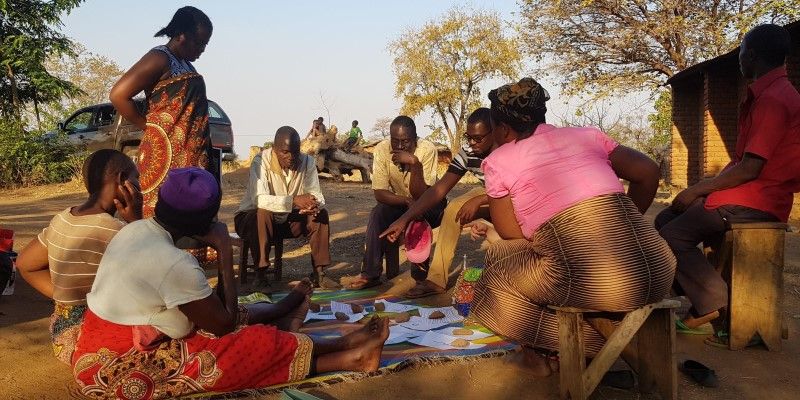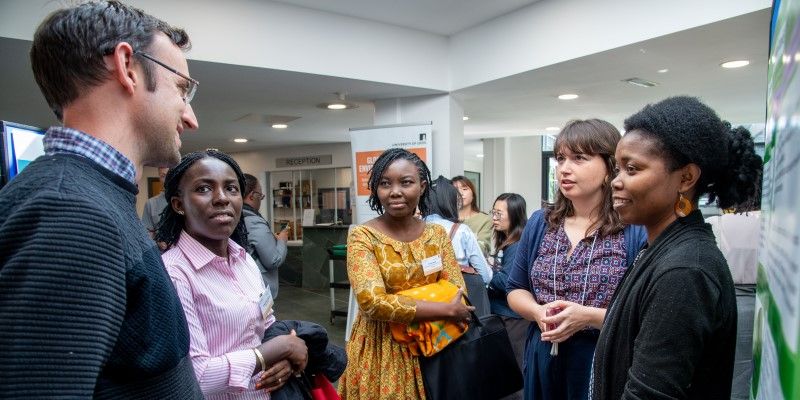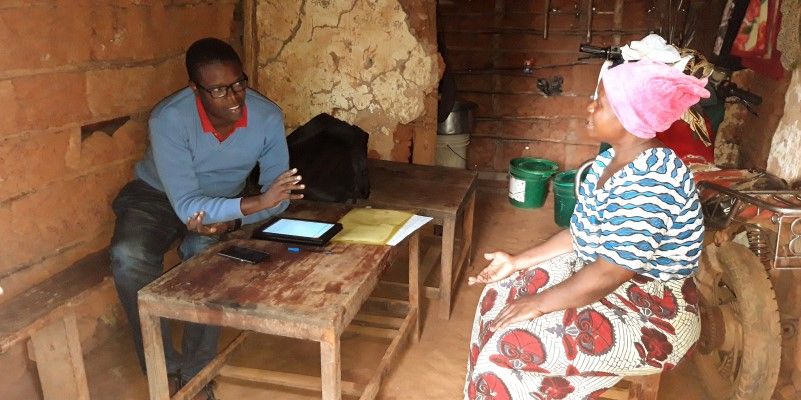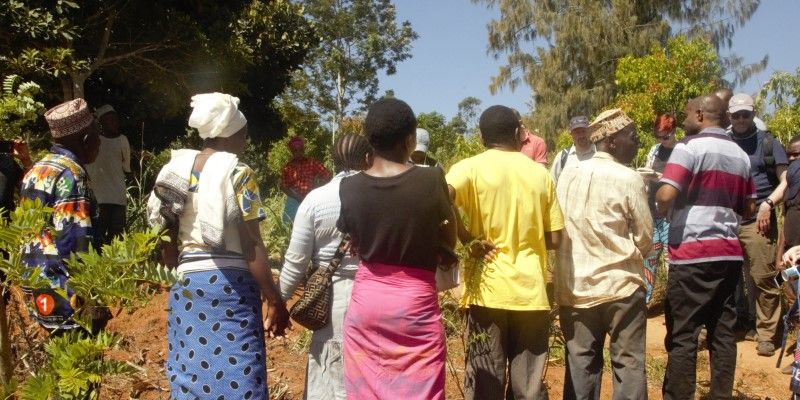Few would deny that major change is needed in how our food is grown, processed and traded. This change needs to both tackle the deep-rooted inequities and vulnerabilities in the global industrial food system and sustain the world’s growing population in a rapidly warming climate.
But transformation in agriculture has a chequered history, particularly in the countries of the Global South. The ‘Green Revolution’ that swept through much of Asia and South America in the 1970s and 80s aimed to increase production and crop yields. But its focus on new technologies was criticised for following the agenda of donors and industry more than the needs of the developing world farmers it purportedly sought to help. Unsustainable practices resulted in widespread ecological damage, whilst farmers who lacked the funds to sustain the higher costs of input-intensive farming practices lost out – deepening existing inequalities.
An international team, involving researchers from the University of Leeds is keen that future changes take account of the lessons of the past. They’ve developed a framework to help other researchers and policymakers ensure that future transformations are both just and fair.

Focus group research on agricultural innovations in Malawi. Photo credit: Thirze Hermans.
Agents of change
Professor Stephen Whitfield from the University’s School of Earth and Environment is part of this team. He says: “Researchers can be agents of change or we can become part of the problem, by reinforcing or even exacerbating existing inequalities. We have to use our position responsibly to expose and redress injustices. We hope the framework we’ve developed will help us, and others, to do that.”
The framework was developed by the African Food Systems Transformation and Justice Challenge Cluster, an international group of academics and practitioners funded by the Global Challenges Research Fund. The framework is based on the outcomes of a series of structured discussions between members of the Cluster, looking at equity and injustice in agricultural transformation, particularly in sub-Saharan Africa.
These discussions helped the team identify three categories of injustice or inequality – historical, distributional and representational – which can be used to analyse transformation research or policy.
Looking at research or policy through a historical lens highlights how deep-seated injustices associated with colonialism, slavery and land grabs continue to shape contemporary food systems. This can be, for example, through corporate influence over approaches to food systems transformation, intellectual property and markets.
A distributional justice lens shows who stands to gain from the outcomes of transformation, given that the benefits and risks will fall differently on people depending on their geography, race, ethnic group, gender, age and a mix of all these factors.
Using a representational justice lens considers the extent to which different individuals, perspectives and knowledge systems are taken into account when designing and delivering transformative change – paying explicit attention to who has power in any system.

Professor Stephen Whitfield with colleagues from the University of Leeds and the University of Ghana. Photo credit: Mark Bickerdike.
Social and environmental justice
Working with his colleague Dr Rebecca Sarku, Professor Whitfield has already used this new framework to assess how well the United Nations’ Koronivia Joint Work on Agriculture (KJWA) is helping to deliver a socially and environmentally just agricultural transformation.
The KJWA is the first attempt to integrate agriculture into the United Nations (UN) Framework Convention on Climate Change. Since inception in 2017, KWJA has been looking at the measures needed to drive global transformation in agricultural and food systems in a way that results in both increased food security and a reduction in emissions.
The University of Leeds researchers found gaps in all three of their categories in KJWA’s work, but particularly in relation to historical and distributional injustices. For example, the process focuses heavily on reducing emissions in sub-Saharan Africa, although historically the region has only made a negligible contribution to global agricultural emissions compared to other regions.
Dr Sarku and Dr Whitfield’s analysis was presented at the UN climate conference, COP27, in Egypt, where the KJWA’s initial phase of work was due to end. The team hope to see a stronger focus on justice in this area, as it is carried on through the Sharm el-Sheikh implementation plan.
Now the team are using the framework to ensure a new University of Leeds-led project is effectively tackling inequalities.

Conducting a household survey in Tanzania. Photo credit: ESRF.
A One Health approach
FoSTA Health is a consortium of 13 partners from southern Africa and Europe, including universities, NGOs and policy advocacy organisations. The project will look at planned food system changes in Southern Africa from a ‘One Health’ perspective: taking into account the interactions between human, animal and environmental health.
Alongside the conventional research, the team have used the framework to build a parallel process that will help them to reflect on any inequalities within the team, the research design or its implementation. The process will also integrate input from the communities they engage with in southern Africa on their experience of the research.
The project brings together researchers and practitioners from various disciplines, such as social scientists, agronomists, hydrologist and experts on infectious diseases and animal health. The team are analysing the One Health impacts of four ongoing changes in agricultural production in Southern Africa in the context of a changing climate: diversification away from maize as a staple crop; increasing production for export; land and water use changes; and the change in diets to include more plant and animal protein.
Postdoctoral Research Fellow Ruth Smith from the University of Leeds works on FoSTA Health, said: “For research to be both transformative and just, we need to reflect on our role as researchers, how we influence the very processes we are evaluating and how we can effectively give a voice to multiple stakeholders.”

Rural community consultation in Tanzania. Photo credit: Hemant Tripathi.